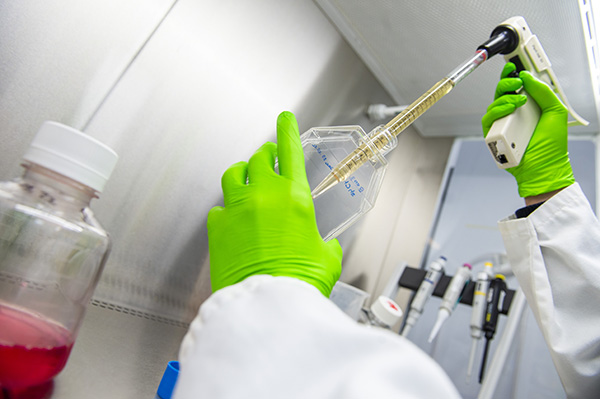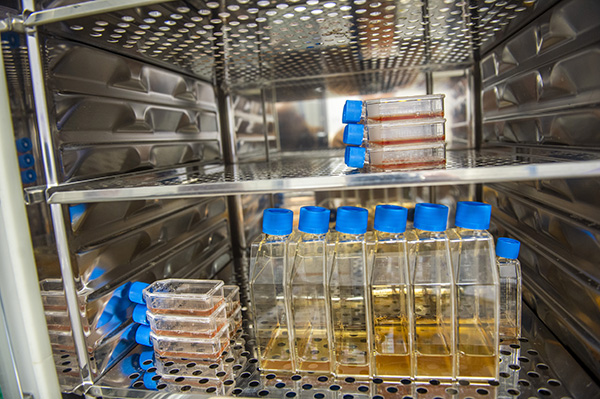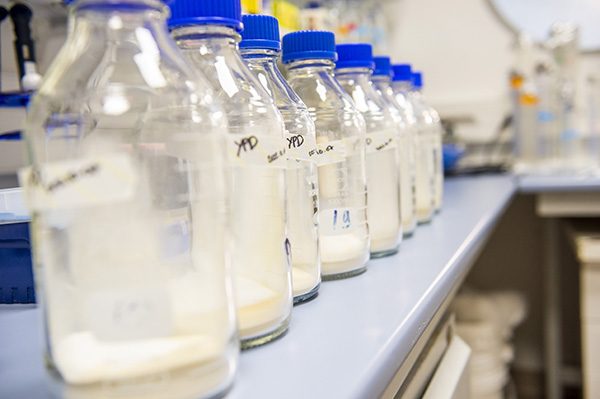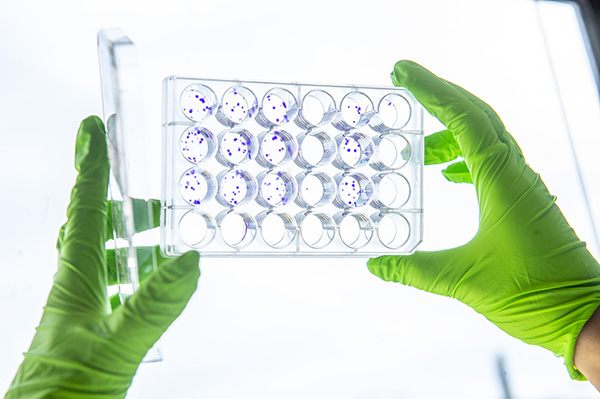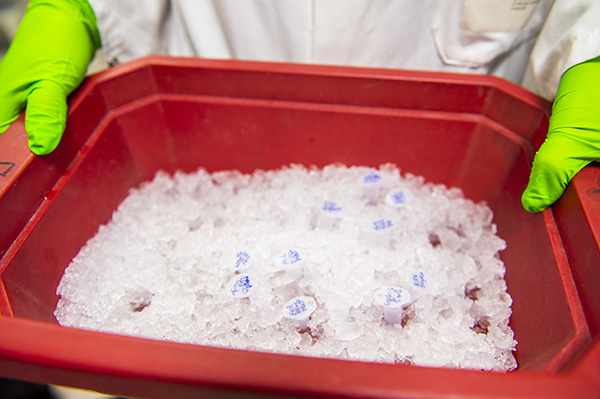Team
Translational Epigenetics
Dpt: Signaling through Chromatin
Our research activities
Origins and positioning. The team was established in 2012 by Jérôme Govin at the Biosciences and Biotechnology Institute of Grenoble (BIG), with a focus on epigenetic signaling pathways, particularly histone acetylation and bromodomains. Since 2018, the team has been hosted by the Signaling Through Chromatin department of the Institute for Advanced Biosciences (IAB). It now includes a translational research program in onco-hematology, led by Anouk Emadali in close collaboration with clinicians from Grenoble University Hospital (CHU Grenoble Alpes).
Research areas. Our work aims to decipher how epigenetic mechanisms regulate cell fate, both in physiological contexts (gamete differentiation in yeast and mammals) and pathological settings (fungal infections, aggressive B-cell lymphomas). We combine approaches from cell biology, biochemistry, proteomics, structural biology, and bioinformatics to investigate these mechanisms in both fundamental and clinical models.
Translational approach. Our team brings together strong expertise in biology, epigenetic signaling, and clinical research, with seven hospital-affiliated physicians, including Sylvain Carras (Professor of Medicine), who also serves as Deputy Director of both the Clinical Research and Innovation Department (DRCI) and the Biological Resource Center (CRB) at CHU Grenoble. This strong clinical integration, aligned with the CHU’s strategic research priorities (epigenetics, cancer, infertility), allows us to develop high-potential translational projects. We are also engaged at the national level through our participation in the scientific board of the Lymphoma Study Association (LYSA).
A collective dynamics. We actively contribute to the development of the local epigenetics community, especially on the Health Campus. Under the leadership of Jérôme Govin, we implement structuring initiatives such as the Grenoble Epigenetics Club, the Interface Clinics & Epigenetics seminar series, and a strategic partnership between IAB and EMBL.
Our research axes
Our team explores chromatin signaling pathways and how they are deregulated in human diseases. Specifically, we study how chromatin factors control genome organization, gene expression, and cell identity. These mechanisms are largely conserved throughout evolution, from yeast to humans.
Learn moreOur major publications
See all publicationsOur activities in pictures
Our collaborations
- Carlo Petosa, Institute of Structural Biology (IBS)
- Charles McKenna, USC Los Angeles, USA
- Guillermo Orsi, IAB
- Julien Thévenon, IAB
- Genaël Rabut, IGDR, Rennes
- Dominique Helmlinger, CRBM, Montpellier
Our technologies
- Molecular and cellular biology
- Cell culture
- Yeast genetics and biochemistry
- B cell lymphomas
- Advances epigenomics (RNA-seq, ChIP-seq, ATAC-seq, Cut&Run-seq, etc)
- Bioinformatic analysis

